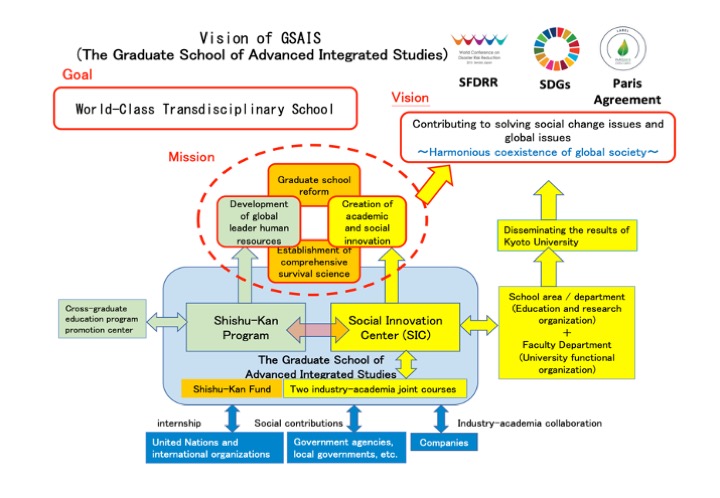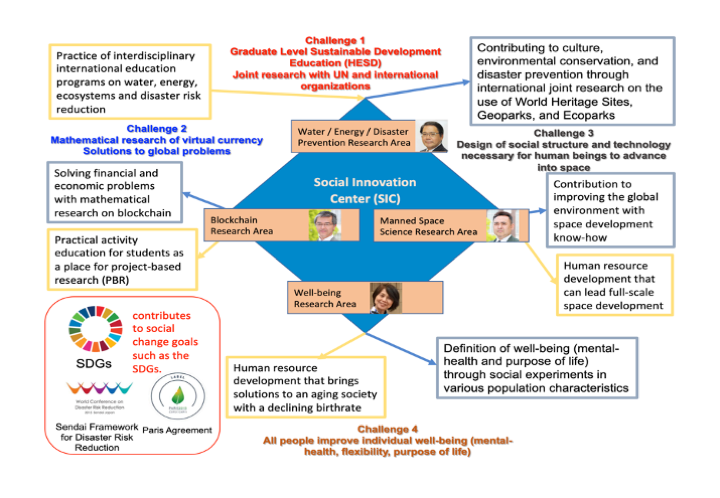Objectives and Necessity
Since the establishment in 2013, the Graduate School of Advanced Integrated Studies (GSAIS) in Human Survivability (or Shishu-Kan) has been forming an academic area called Human Survivability Studies, which intends to lead the global society to more sustainable and happier, using consilience approaches and developing capable global human resources to solve various social problems that we are facing. The sustainable development goals (SDGs) have been agreed upon internationally in 2015 to transform the global society toward a better society. Establishing the headquarters for SDGs in May 2016, the Japanese government makes various efforts with all the ministries and agencies to promote SDGs. The SGDs are in line with Kyoto University’s mission “To pursue harmonious coexistence within the human and ecological community on this planet,” as well as the establishment of the GSAIS. Considering these circumstances, we decided to form the “Social Innovation Center” (SIC) in the GSAIS, the first SIC in the national universities in Japan, and academically contribute to the implementation of social innovation and global issues. We believe that it is significant to strengthen the university’s brand power by promoting research and education toward SDGs as an open university. The SIC intends to contribute to the dissemination of outcomes of excellent interdisciplinary research and human resources development.
What to do
Based on the concept of human
survivability studies and newly developed research themes that the GSAIS has
promoted so far, the Social Innovation Center (SIC) implements consilience
scientific research, human resources development, and social contribution activities
as a platform for collaboration among different faculties in the university and
organizations outside. The SIC deals with leading research themes on primary
resources areas for human survivability such as water, energy, and disaster
management and newly developed areas such as blockchain, manned space science,
and well-being. In terms of human resources development and six educational
programs in UNESCO Chair WENDI, the SIC will establish a guideline for
systematic learning of graduate school subjects by arranging them considering
SDGs. It also collects information about SDGs-related activities implemented by
each faculty/department/institute of the university and disseminates Kyoto
University’s actions to the world. Using the outputs of the university, the SIC
periodically organizes seminars inviting people from enterprises, governments,
and the general public, and aims to obtain effective outcomes for social
innovation of industry-university collaboration and social cooperation.


This post is also available in:
 日本語 (Japanese)
日本語 (Japanese)




